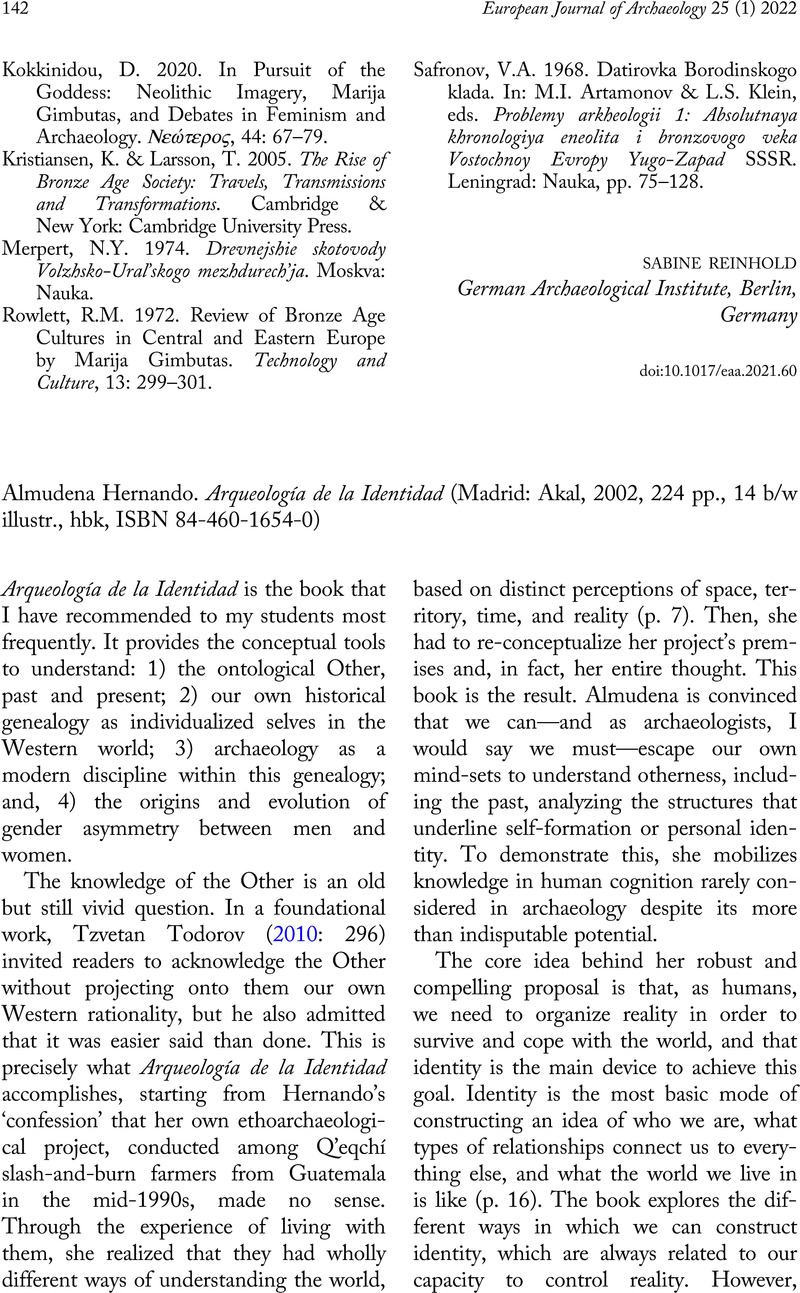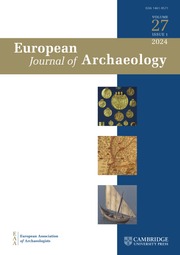No CrossRef data available.
Article contents
Almudena Hernando. Arqueología de la Identidad (Madrid: Akal, 2002, 224 pp., 14 b/w illustr., hbk, ISBN 84-460-1654-0)
Review products
Almudena Hernando. Arqueología de la Identidad (Madrid: Akal, 2002, 224 pp., 14 b/w illustr., hbk, ISBN 84-460-1654-0)
Published online by Cambridge University Press: 14 February 2022
Abstract
An abstract is not available for this content so a preview has been provided. Please use the Get access link above for information on how to access this content.

- Type
- Book Review
- Information
- Copyright
- Copyright © The Author(s), 2022. Published by Cambridge University Press on behalf of the European Association of Archaeologists
References
Combahee River Collective 1977. History is a Weapon. Combahee River Collective: A Black Feminist Statement [accessed 15 September 2021]. Available at: <http://historyisaweapon.com/defcon1/combrivercoll.html>>Google Scholar
Fowler, C. 2016. Relational Personhood Revisited. Cambridge Archaeological Journal, 26(3): 397–412. doi: https://doi.org/10.1017/S0959774316000172CrossRefGoogle Scholar
Hernando Gonzalo, A. 2003. En la Prehistoria no vivieron ‘individuos’. Sobre los problemas de aplicación de la Teoría de la Acción a las sociedades prehistóricas. Era-Arqueologia, 6: 84–99.Google Scholar
Hernando, A. 2013. Change, Individuality and Reason: Or How Archaeology has Legitimized a Patriarchal Modernity. In: González-Ruibal, A., ed. Reclaiming Archaeology: Beyond the Tropes of Modernity. Routledge: London, pp. 155–67.Google Scholar
Hernando, A. 2017. The Fantasy of Individuality: On the Sociohistorical Construction of the Modern Subject. Cham: Springer.CrossRefGoogle Scholar
Montón-Subías, S. & Hernando, A. 2018. Modern Colonialism, Eurocentrism, and Historical Archaeology: Some Engendered Thoughts. European Journal of Archaeology, 21(3): 445–71. doi: https://doi.org/10.1017/eaa.2017.83CrossRefGoogle Scholar
Olson, D.R. 1994. The World on Paper: The Conceptual and Cognitive Implications of Reading and Writing. Cambridge & New York: Cambridge University Press.Google Scholar
Todorov, T. 2010 [1982]. La conquista de América: El problema del otro. Madrid: Siglo Veintiuno.Google Scholar


